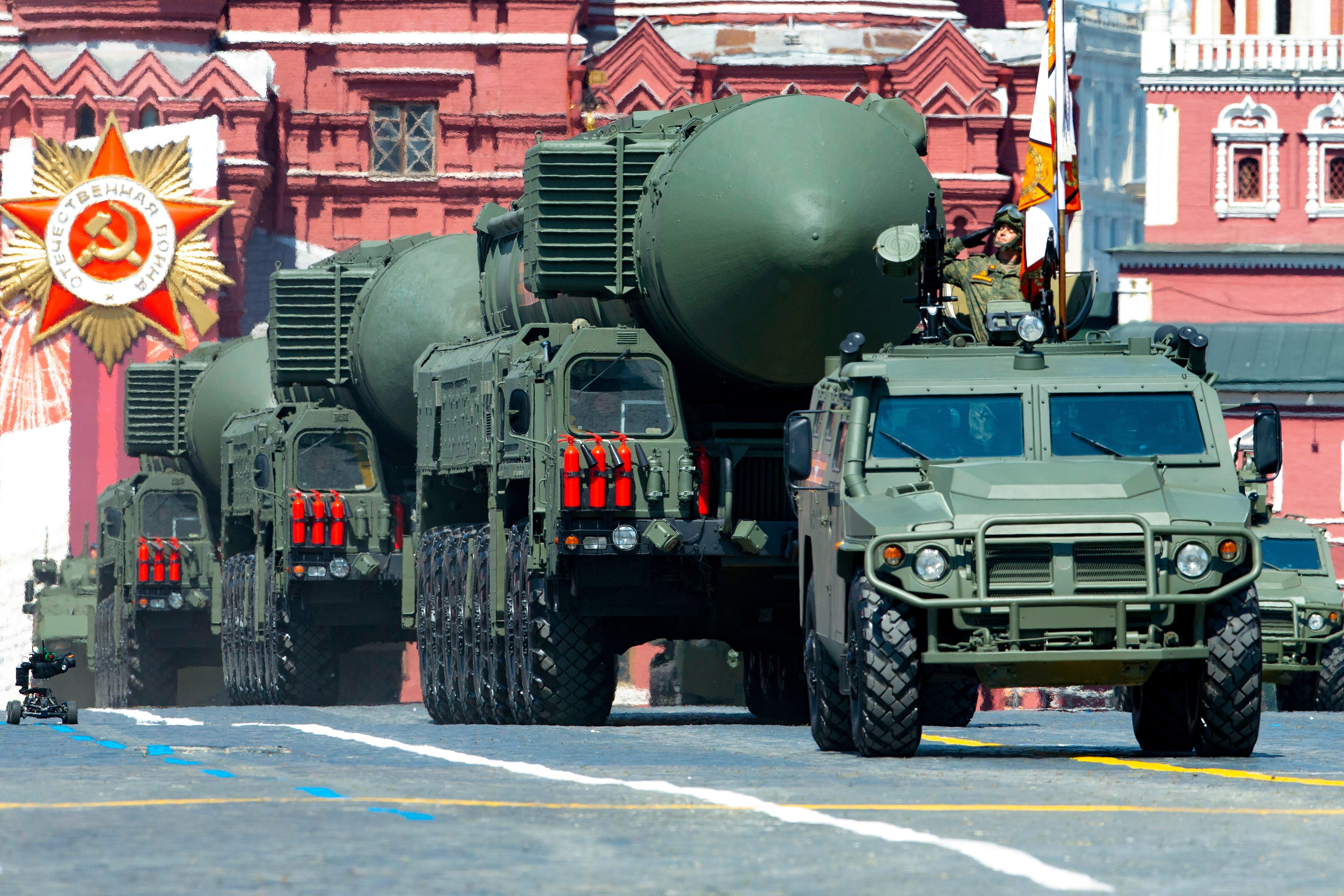Putin signs extension of last Russia-US nuclear arms treaty
Russian President Vladimir Putin has signed a bill extending the last remaining nuclear arms control treaty between Russia and the United States a week before the pact was due to expire

Your support helps us to tell the story
From reproductive rights to climate change to Big Tech, The Independent is on the ground when the story is developing. Whether it's investigating the financials of Elon Musk's pro-Trump PAC or producing our latest documentary, 'The A Word', which shines a light on the American women fighting for reproductive rights, we know how important it is to parse out the facts from the messaging.
At such a critical moment in US history, we need reporters on the ground. Your donation allows us to keep sending journalists to speak to both sides of the story.
The Independent is trusted by Americans across the entire political spectrum. And unlike many other quality news outlets, we choose not to lock Americans out of our reporting and analysis with paywalls. We believe quality journalism should be available to everyone, paid for by those who can afford it.
Your support makes all the difference.Russian President Vladimir Putin on Friday signed a bill extending the last remaining nuclear arms control treaty between Russia and the United States a week before the pact was due to expire.
Both houses of the Russian parliament voted unanimously Wednesday to extend the New START treaty for five years. Putin and U.S. President Joe Biden had discussed the nuclear accord a day earlier, and the Kremlin said they agreed to complete the necessary extension procedures in the next few days.
New START expires Feb. 5. The pact’s extension doesn’t require congressional approval in the U.S., but Russian lawmakers had to ratify the move. Russian diplomats said the extension will be validated by exchanging diplomatic notes once all the procedures are completed.
The treaty, signed in 2010 by President Barack Obama and Russian President Dmitry Medvedev, limits each country to no more than 1,550 deployed nuclear warheads and 700 deployed missiles and bombers, and envisages sweeping on-site inspections to verify compliance.
Biden indicated during the U.S. presidential campaign that he favored the preservation of New START, which was negotiated during his tenure as vice president under Obama.
Russia had long proposed prolonging the pact without any conditions or changes, but the administration of former President Donald Trump waited until last year to start talks and made the extension contingent on a set of demands. The talks stalled, and months of bargaining failed to narrow differences.
After both Moscow and Washington withdrew from the 1987 Intermediate-Range Nuclear Forces Treaty in 2019, New START is the only remaining nuclear arms control deal between the two countries.
Earlier this month, Russia announced that it would follow the U.S. in pulling out of the Open Skies Treaty, which allowed surveillance flights over military facilities to help build trust and transparency between Russia and the West.
Arms control advocates hailed New START's extension as a boost to global security and urged Russia and the U.S. to start negotiating follow-up agreements.
Russian Deputy Foreign Minister Sergei Ryabkov, the country's lead negotiator on New START, said earlier this week that Russia was ready to sit down for talks on prospective arms cuts that he indicated should also involve non-nuclear precision weapons with strategic range.
Russia had offered before Biden took office to extend New START for five years — a possibility that was envisaged by the pact at the time it was signed.
Trump argued that the treaty put the U.S. at a disadvantage, and he initially insisted on adding China as a party to pact. Beijing bluntly rejected the idea. The Trump administration then proposed extending New START for one year and sought to expand it to include limits on battlefield nuclear weapons and other changes, and the talks stalled.